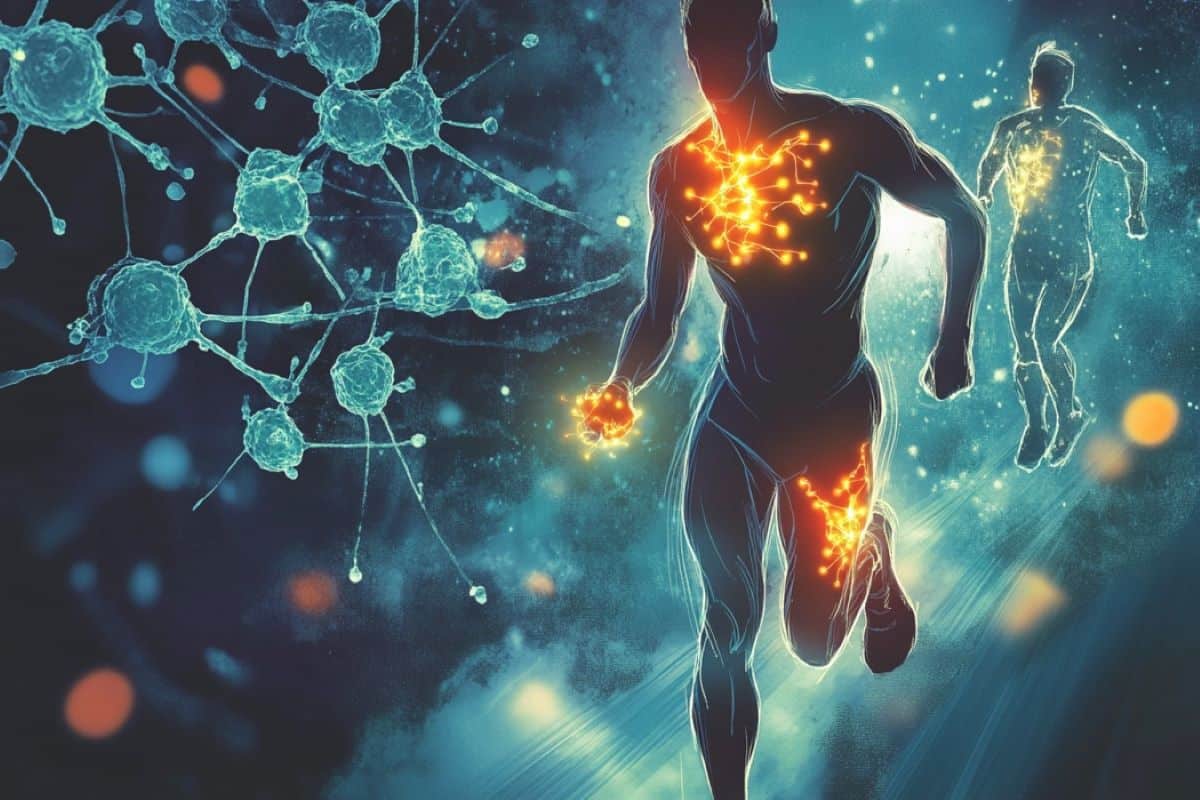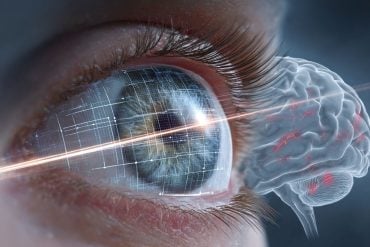Summary: Researchers have developed a molecule called LaKe that mimics the metabolic effects of strenuous exercise and fasting. This molecule increases lactate and ketone levels in the body, providing similar benefits to running 10 kilometers on an empty stomach, without physical exertion or dietary changes.
Currently being tested in human trials, LaKe shows promise for helping people with limited physical ability maintain health, and may also aid in treating brain conditions like Parkinson’s and dementia. The discovery offers a potential new path for those unable to follow strict exercise or fasting routines.
Key Facts:
- The LaKe molecule mimics the effects of fasting and exercise by boosting lactate and ketones.
- Early research suggests it could help with conditions like brain trauma and dementia.
- Human trials are underway to test its use as a nutritional supplement for people unable to exercise.
Source: Aarhus University
It is well known that regular exercise and periodic fasting have a series of positive effects on the body. Exercise and skipping meals makes for a stronger heart and reduces fat levels in the blood.
The explanation lies in the body’s natural reaction in which increasing levels of lactate (the salt of lactic acid) and ketones act as efficient fuel for cells which benefit the body’s organs.
A group of chemistry, metabolism and diabetes researchers from Aarhus University has now created a molecule that can induce the same metabolic effects, without physical exertion or fasting.
The study has just been published in the scientific journal: Journal of Agricultural and Food Chemistry.
Same effect as a 10 km run on an empty stomach
“We’ve developed a molecule that can mimic the body’s natural metabolic response to strenuous exercise and fasting. In practice, the molecule brings the body into a metabolic state corresponding to running 10 kilometres at high speed on an empty stomach,” explains Professor Thomas Poulsen from the Department of Chemistry at Aarhus University. He is one of the leading researchers behind the study.
“When lactate and ketone levels in the blood increase, the production of an appetite-suppressing hormone increases and the level of free fatty acids in the blood decreases. This has a number of health benefits, for example reducing the risk of developing metabolic syndrome.”
According to the professor, it is not possible to achieve the same effect through diet alone, since lactate and ketones, although they occur naturally, cannot be consumed in the necessary quantities without undesirable by-products such as acid and salt. This is where the new molecule, called LaKe, comes in.
Molecule > dietary supplements
The development of LaKe is the result of several years of research collaboration between Thomas Poulsen, Professor Mogens Johannsen from the Department of Forensic Medicine, and Chief physician and Professor Niels Møller, at the Department of Clinical Medicine and Steno Diabetes Center, Aarhus.
All three have researched metabolism from different angles, and they all already knew from their own and others’ studies that lactate and ketones have beneficial effects. It took them three years to make the chemical fusion of lactate and ketones, without the harmful ‘fellow passengers’ in the form of salt and acid.
“In a way, we’re not surprised by the effect, because we are combining well known substances. The innovation is that we have now created a molecule which allows us to artificially control the amounts of lactate and ketones safely,” says Thomas Poulsen.
So far, the molecule has only been tested on rats, but the first clinical trials in humans are now underway at Aarhus University Hospital.
According to Thomas Poulsen, the trials are expected to pave the way for the molecule to become an advanced nutritional supplement. It will especially help people who cannot follow a strict exercise and diet plan.
“It can be difficult to maintain motivation to run many kilometres at high speed and go without food. For people with physical ailments such as a weak heart or general weakness, a nutritional supplement can be the key to better recovery,” explains Thomas Poulsen.
Perspectives for treatment of brain trauma
The molecule also has potential to alleviate concentration difficulties and may be used in the treatment of serious diseases such as Parkinson’s and dementia. These diseases are often characterized by low energy levels in the brain, which inhibit its optimal functioning.
“Because lactate can take over the role of glucose in the brain under stressful or traumatic conditions, there have been experiments to increase lactate levels in people with concussion.
“Patients who cannot perform strenuous exercise will benefit greatly from a drug that can boost these levels,” explains Thomas Poulsen.
About this neuropharmacology, diet, and exercise research news
Author: Henriette Stevnhoej
Source: Aarhus University
Contact: Henriette Stevnhoej – Aarhus University
Image: The image is credited to Neuroscience News
Original Research: Open access.
“Preparation and Preclinical Characterization of a Simple Ester for Dual Exogenous Supply of Lactate and Beta-hydroxybutyrate” by Thomas Poulsen et al. Journal of Agricultural and Food Chemistry
Abstract
Preparation and Preclinical Characterization of a Simple Ester for Dual Exogenous Supply of Lactate and Beta-hydroxybutyrate
Elevation of the plasma levels of (S)-lactate (Lac) and/or (R)-beta-hydroxybutyrate (BHB) occurs naturally in response to strenuous exercise and prolonged fasting, respectively, resulting in millimolar concentrations of these two metabolites.
It is increasingly appreciated that Lac and BHB have wide-ranging beneficial physiological effects, suggesting that novel nutritional solutions, compatible with high-level and/or sustained consumption, which allow direct control of plasma levels of Lac and BHB, are of strong interest.
In this study, we present a molecular hybrid between (S)-lactate and the BHB-precursor (R)-1,3-butanediol in the form of a simple ester referred to as LaKe.
We show that LaKe can be readily prepared on the kilogram scale and undergoes rapid hydrolytic conversion under a variety of physiological conditions to release its two constituents.
Oral ingestion of LaKe, in rats, resulted in dose-dependent elevation of plasma levels of Lac and BHB triggering expected physiological responses such as reduced lipolysis and elevation of the appetite-suppressing compound N-L-lactoyl-phenylalanine (Lac-Phe).








